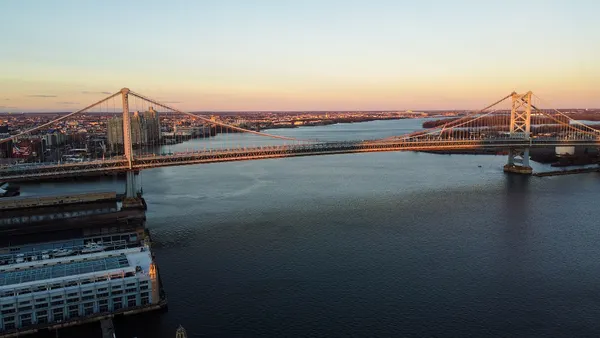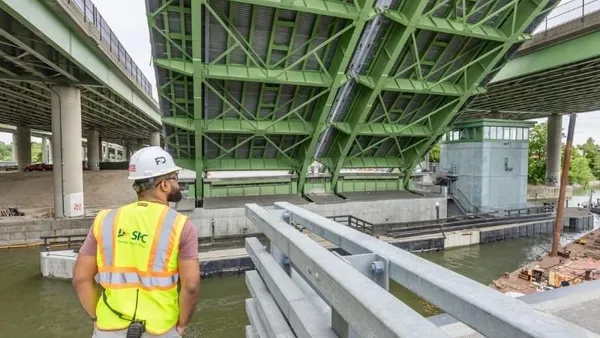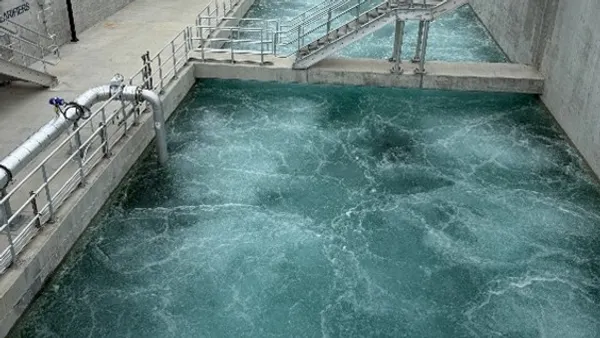Dive Brief:
- The Federal Highway Administration has approved a $1.2 billion Colorado Department of Transportation proposal for the replacement of a 10-mile stretch of Interstate 70 running through Northeast Denver, according to the Denver Post.
- The CDOT's plan, which has faced numerous legal challenges and has been in the works for 14 years, would see the replacement of an existing 2-mile viaduct with a below-grade freeway that would provide extra lanes and a 4-acre park overhead.
- Critics have argued that the project would create air quality issues, as well as force out 56 households and 17 businesses from the mostly Hispanic area, creating fears of gentrification. The CDOT argued that the design of the greenery-infused highway cap would restore the interconnectedness between neighborhoods previously isolated by the existing highway.
Dive Insight:
Even though the threat of future court action has not been eliminated, the CDOT is now able to pursue the bid process — and a 2018 construction start date — with four potential project teams. The winner will take on the highway expansion as a public-private partnership (P3) and will design, build, finance, operate and maintain the completed highway.
Some onlookers said the FHWA's timing of approval the night before President Donald Trump's inauguration was intentional, suggesting that the Department of Transportation aimed to settle the matter before a changing of the guard complicated matters, according to CityLab.
However, the P3 model — utilized for this project project — is a crucial component of Trump's plan and has raised some concern among Democrats. Just last week, outgoing DOT secretary Anthony Foxx said that despite Trump's focus on P3s as the way to accomplish his $1 trillion infrastructure goals, that strategy could meet no more than 20% of the country's requirements.
House Speaker Paul Ryan, R-WI, in an interview with Charlie Rose, last week said Trump's infrastructure plans would include a private-to-public-money ratio of 40 to 1 and that P3s would play a major role. Critics of Trump's plan have argued that with such an investor-focused program — an 82% tax credit in exchange for private equity investment — essential projects that don't generate profits could be ignored.
Nevertheless, major investors seem to be excited about the prospect of big returns from aggressive public construction programs like the one the president has proposed. According to a recent Altus Group survey, U.S. real estate executives, asked to allocate a hypothetical $1 billion into their choice of categories, said they would put 15.5% into infrastructure projects, up 215% from last year.












